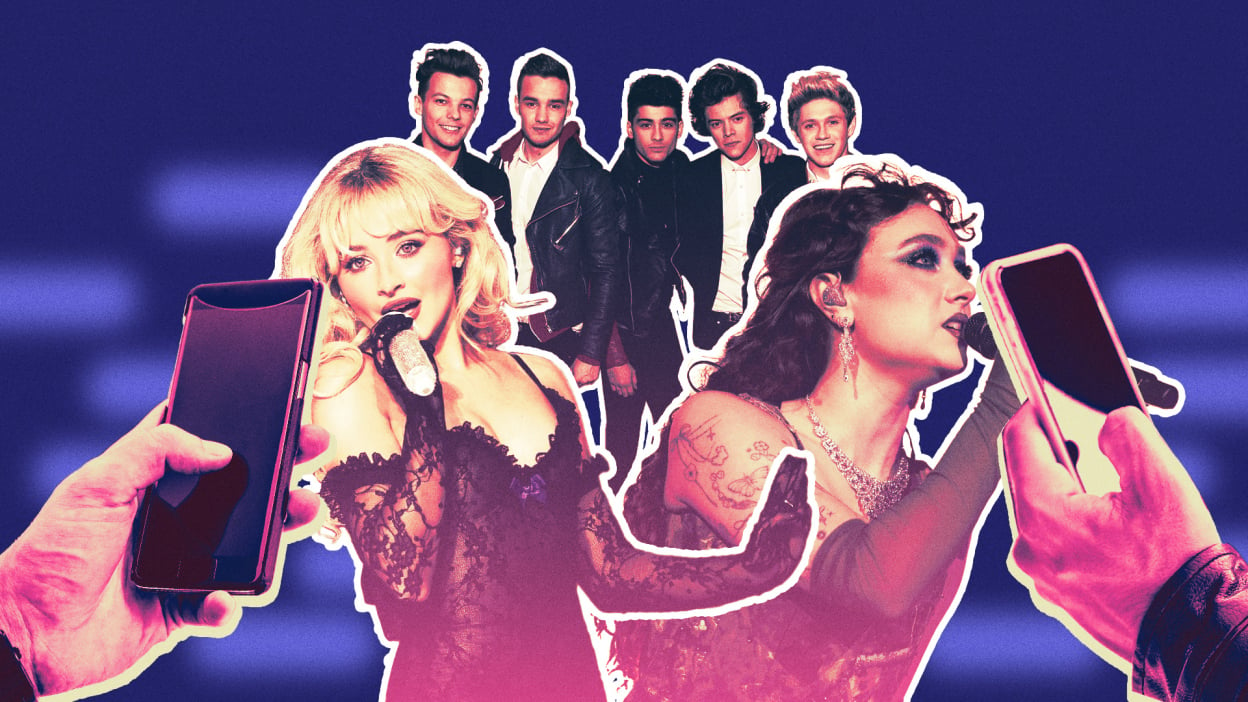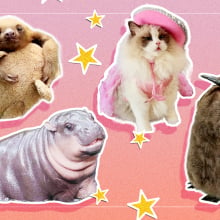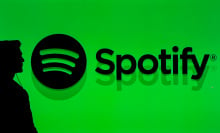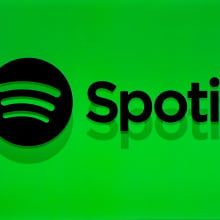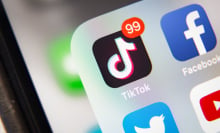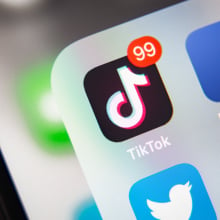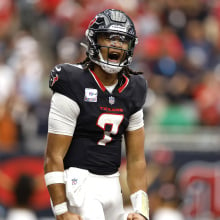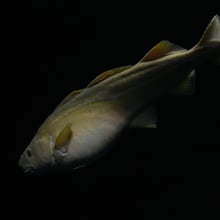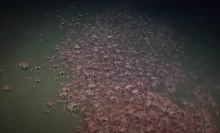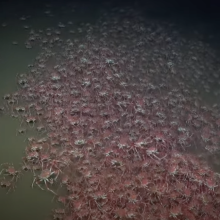"I'm 17 and AFRAID of Sabrina Carpenter," is the latest so-called fan behavior getting ridiculed online.
The original tweet, posted by Pop Fan Account (@Popmvsics) on Oct. 12, reads: "You guys are disgusting and weird for defending a literal weirdo. Im 17 and AFRAID of Sabrina Carpenter when she's performing. You guys need help." It quickly went viral, racking 17.9 million views and becoming the copypasta du jour online.
Tweet may have been deleted
While the phrase is funny, it highlights a growing tension in fan culture, where social media amplifies extreme behaviors while complicating traditional fan-artist relationships. The post is part of a misogynistic thread shaming the "Espresso" singer for her sexy persona and suggestive dance moves on her Short an' Sweet Tour.
A follow-up tweet reads: "You never see Taylor showing herself on stage like that. Anyways queen Tay Tay remains Sabrina’s ender." Notably, Carpenter doesn't "show herself" in the video that sparked the response and, ironically, she opened for Swift’s Eras Tour.
Online posts like "I'm 17 and AFRAID of Sabrina Carpenter" often go viral, painting pop music fandom in a negative light. However, scholars argue that real fandom is rooted in positive relationships with artists. "A lot of it isn't coming from real fans. It's from people who want to be loud, get attention, and be rewarded by the algorithm. It’s rooted in that outrage economy more than genuine fan reactions," Georgia Carroll, a fan culture expert, told Mashable.
There’s a constant tension between fans building community online and the profit-driven nature of social media platforms. In an email to Mashable, Mark Duffett, an Associate Professor in Media and Cultural Studies at the University of Chester, explained that fans form communities to maintain the thrill of an artist's performance. But often, the community becomes more important than the artist. "For many, fandom starts with appreciating the artist but quickly becomes about the sense of belonging within the fan community," added Jenessa Williams, a postdoctoral fellow at Stanford's Digital Civil Society Lab who wrote her PhD on music fandom.
However, to be part of these communities on platforms like stan Twitter, the side of X/Twitter devoted to fervently discussing artists and celebrities, fans are at odds with the algorithms. "Platforms are advertising machines. Their goal is to have as much consistent use as possible to sell their high user base to advertisers. Algorithms will show you things that make you angry because that keeps people on the site longer," says Mel Stanfill, Associate Professor of English at the University of Central Florida and author of Fandom is Ugly. This optimization for engagement often encourages negative interactions over genuine community-building.
The behavior encouraged by platforms, combined with unprecedented access to celebrities, creates a complex ecosystem that genuine fans must navigate. Recently, with the death of One Direction’s Liam Payne and Chappell Roan's comments about the tolls of modern fame, pop music fandom is in a moment of reflection.
According to experts, parasocial relationships — where fans feel a personal connection to celebrities — are normal. The term dates back to the 1950s and describes the feeling of knowing a celebrity even if you've never met them. But social media has intensified these relationships. Fans once engaged with artists through music and magazine profiles, but now they can access them daily on TikTok, Instagram, and X/Twitter. Following a daily updates account means being inundated with images and news about the artist daily.
"[Social media] causes a sort of blurring of boundaries, where people do feel like they are closer to celebrities than they ever have," Stanfill explained.
Chappell Roan's rise to fame coincided with her steady stream of TikTok posts, fostering a sense of intimacy with her fans. In August, she uploaded a video setting boundaries, asking fans not to yell at her on the street, request photos, or invade her and her family's privacy. "I don't care that abuse and harassment, stalking is a normal thing to do to people who are famous," she said. "I don't care that it’s normal. I don't care that this crazy type of behavior comes along with the career field I've chosen. That does not make it OK. That doesn’t make it normal. It doesn’t mean I want it. It doesn’t mean that I like it. I don’t want whatever the fuck you think you're supposed to be entitled to whenever you see a celebrity."
The series of TikToks went viral, and Roan quickly faced backlash from all directions. As Stanfill explained, "She wasn't trying to manipulate people, but it did cultivate a certain kind of relationship where her fans felt like they know her. They responded to her as if they knew her, and they went too far." By setting boundaries, Roan broke the unspoken contract of constant accessibility that many fans expect from celebrities.
"When that emotional attachment is denied, people can react negatively. They can be embarrassed that they have done something they shouldn't. Sometimes people who are embarrassed will behave badly to protect their self-image," said Stanfill.
At the risk of being robbed of her personhood, Roan is smartly attempting to set boundaries with fans before it spirals even more out of control — a luxury that the members of One Direction didn't have during their meteoric rise. At the height of their fame, they fostered deep connections with fans through constant livestreaming and tweeting, building intense bonds that sometimes blurred personal boundaries.
After Payne's death on Oct. 16, many fans, including the New Statesman's Anna Leszkiewicz, pondered their complicity in what was ultimately a tragedy tied to fame. She wrote, "How could we justify doing this to such young people – separating them from their families, their normality, and their sense of themselves – then laughing as they fumble their way through adulthood? How many victims does the pop music industry have to produce before something changes?"
Since One Direction joined Twitter in 2010, the rapid spread of information online has only intensified, permanently reshaping fandom and heightening the stakes for artists navigating fame.
Before social media, if a fan saw a celebrity on the street, they might phone a friend, and by that point, the celebrity would no longer be at the spot where they saw them. Now, that information can be posted online for thousands to see instantaneously.
In a profile in Rolling Stone, Roan explained that she posted the now-infamous TikTok after a fan grabbed and kissed her and someone called her dad after his number leaked online. "The things that make platforms great for activism also make them great for harassment," said Stanfill. Without social media, Roan's dad's phone number wouldn't have reached so many people.
Williams pointed out that social media has also changed how fans perceive interactions with their idols. "There's this wider economy of fans being able to show that they've had the interaction," she told Mashable. "They can be more concerned with getting the video — which becomes content — than they are actually worried about having that genuine connection."
On platforms like TikTok, X, and Instagram, videos of fans interacting with artists routinely attract thousands of views. The viral appeal of these clips fuels the commodification of fan-artist interactions, turning genuine moments into performances for the camera. "Chappell Roan is reaching fame in the age of TikTok and constant surveillance," noted Carroll.
Following Payne's death, hundreds of thousands of Directioners returned to social media, the very platforms where they once shared excitement over album drops and music videos, to mourn. Amid heartfelt tributes and cherished memories, users also reexamined the band's years in the spotlight, casting new light on the overwhelming amount of content produced and the intense scrutiny it brought.
Williams suggests that fans focus on building community within their fandom, creating connections with fellow fans rather than seeking validation from the artist. "[That] can be a lot more healthy than striving for that interactional recognition from the artists," she explained. A sense of community can serve as a substitute for the need to feel close to an artist, and even for the impulse to know everything about them. Why not get to know someone equally passionate, posting about what they love?
As fans and artists navigate these evolving norms, there's an opportunity to redefine what a healthy, positive fan community looks like — one that values a relationship with the art over viral moments or the need to know every detail about an artist.
